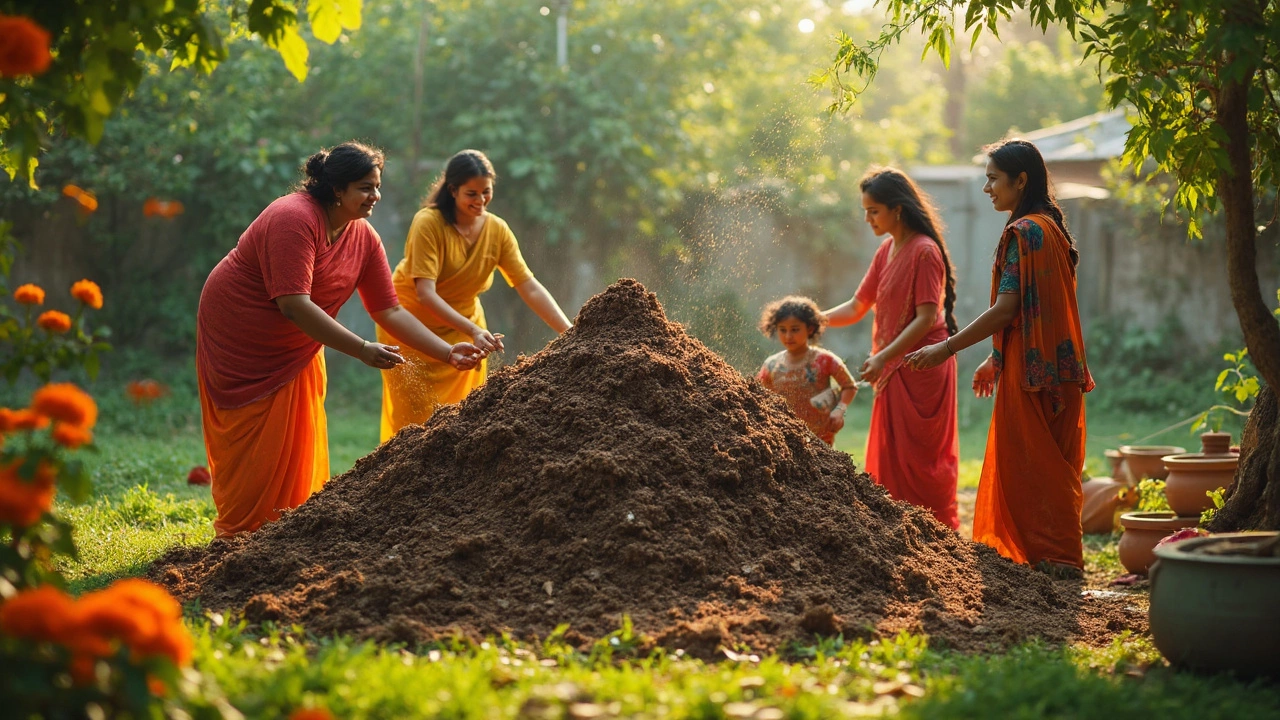Everything you need to know about compost activators—how they work, what ingredients speed up compost, and practical tips to supercharge your pile naturally.
Compost Accelerator: Speed Up Your Home Compost Naturally
When you’re trying to turn kitchen scraps into rich soil, a compost accelerator, a substance that speeds up the breakdown of organic matter in compost piles. Also known as compost activator, it’s not magic—it’s biology. It works by boosting the microbes already living in your pile, helping them eat faster and turn waste into dark, crumbly humus in weeks instead of months. Most people think you need fancy products, but the truth? You already have everything you need in your kitchen and yard.
What actually makes compost break down quicker? It’s not just one thing—it’s a mix of carbon-rich browns, dry, woody materials like dried leaves, straw, or shredded paper that provide energy for microbes, nitrogen-rich greens, fresh scraps like veggie peels, coffee grounds, and grass clippings that give microbes protein to multiply, plus air and water. If your pile is slow, it’s probably missing one of these. A compost accelerator doesn’t replace them—it just gives the microbes a little extra push. Think of it like adding yeast to bread dough: the flour and water are still the base, but the yeast makes it rise faster.
In Indian homes, where space is tight and heat is high, composting can get sluggish during monsoons or dry spells. That’s where simple, local tricks shine. A handful of finished compost from last season acts as a natural accelerator—it’s full of active microbes. So does urine (yes, really), which is high in nitrogen and instantly wakes up a tired pile. Crushed eggshells add calcium and help balance pH. Even a cup of molasses dissolved in water poured over the pile feeds the good bacteria. You don’t need to buy anything. The best accelerators are the ones you already throw away.
Some products claim to work miracles, but many are just ground-up manure or seaweed with fancy packaging. Stick to what works: keep your pile moist like a wrung-out sponge, turn it every week to let air in, and layer greens and browns like a sandwich. If you’ve tried everything and your compost still smells or takes forever, the problem isn’t the accelerator—it’s the balance. Check your mix. Too many greens? Add more dried leaves. Too dry? Sprinkle water. Too compact? Poke holes with a stick. Compost isn’t complicated. It’s just nature doing its job, with a little help from you.
Below, you’ll find real guides from Indian gardeners who’ve cracked the code on fast, odor-free compost. Some use cow dung. Others swear by banana peels. One even uses tea leaves and rice water. No theory. Just results. Whether you’re composting on a balcony, in a backyard, or with a tumbler, you’ll find a method that fits your space, your waste, and your rhythm. No fluff. No jargon. Just what actually works.
